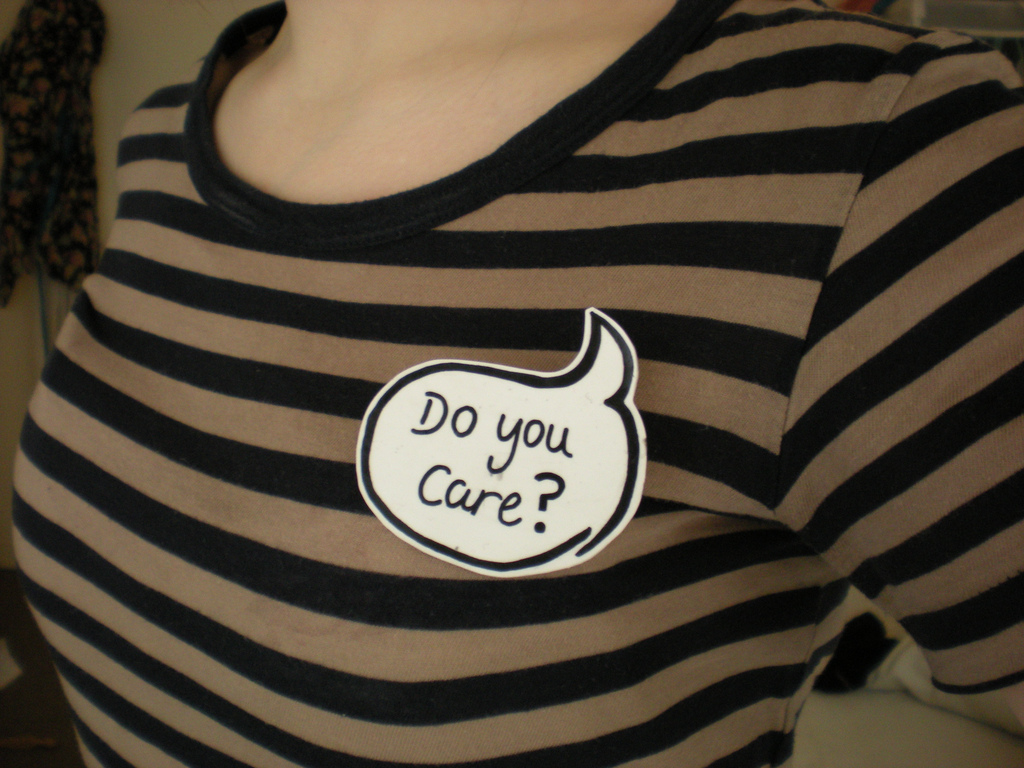Unsucking Small Talk
“So what do you do for fun?”
I was at a party and had just been introduced to a friend of a friend. Unfortunately, my friend was called away almost immediately and we two not-quite strangers were left staring at one another.
And that’s when it happened.
That is when a seemingly simple question made me want to run screaming from the building.
Small talk had struck.Small talk can be an important and helpful part of negotiating.
It can give you information about the other person; help you see one another as human beings instead of bitter rivals; and inject an otherwise dry situation with a bit of humor and personality.
But small talk can also be painful. It can feel forced or false, and floundering around for something to say doesn’t usually do a whole lot to help the old self-confidence.
When the friend of a friend kicked off our small talk with, “So, what do you do for fun?” I cringed.
After the party I tried to figure out why. She’d technically done what all the advice columns tell you to do when making small talk: she focused on me, asked questions and encouraged me to talk about things I’m genuinely interested in.
So what’s the secret? What can you say, and how can you say it, to make small talk not suck?
When I say “not suck” I mean (1) coming up with something to say doesn’t feel like an overwhelming task and (2) you spend as little time as possible engaged in small talk before getting to more rewarding conversation.
Coming Up With Something to Say
The advice you’ve heard before about small talk is good advice. You should ask questions, you should encourage the other person to talk about things they’re genuinely interested in and you should focus on them. But you need a little more to round it out.
Don’t ask big questions
Part of what I didn’t like about the seemingly innocuous “what do you do for fun” question is that it’s too big. I do all sorts of things for fun. Hundreds of different things for fun. But figuring out which things were the right things to talk about at this party and with this person was too big a task.
 Big questions put the social risk on the person who’s been asked the question. If the answer they come up with doesn’t fit the social situation or the person they’re talking with, they run the risk of embarrassing themselves or feeling uncomfortable. All because you decided to talk to them.
Big questions put the social risk on the person who’s been asked the question. If the answer they come up with doesn’t fit the social situation or the person they’re talking with, they run the risk of embarrassing themselves or feeling uncomfortable. All because you decided to talk to them.
So don’t put someone in that situation.
Use small questions to start small talk. For someone you’ve just met, “How do you know the person who just introduced us?” is a good small question.
For someone you know but not very well, reference something from the last conversation you had with them like, “How was your weekend?” or “Did you get that book from the library you’ve been talking about?”
Ask questions you’re interested in
A lot of small talk is boring. But it’s something to say, so we say it to fill up the space.
Instead of automatically asking where someone is from or what they do, ask questions you’re actually interested in. Come up with questions that will encourage conversations you know you’ll like having.
It will make small talk a lot less nerve wracking. For both of you.
Spend some time answering these questions for yourself:
+What do you like learning about people?
+What are topics you like talking about?
+What’s a (non-political) current topic you’re interested in?
Got a couple ideas? Great! Come up with two or three questions that relate to what you like. These are your small talk go-to questions that you can use instead of “So, what do you do for a living?” or “Where are you from?”
Some examples:
“I’ve been gathering book suggestions from people; have you read anything recently that you really liked?”
“I like your [hat/shoes/tie/general out look on life]. Where’d you get it from?”
Spend As Little Time As Possible Engaged in Small Talk
Small talk serves a purpose: it helps you find a topic that can form the basis of a real conversation or it helps you transition to a different conversation with the person you know you need to have. In both situations the small talk doesn’t need to last terribly long.
Uncovering a topic of conversation
Remember all those interesting questions you just came up with? Be willing to answer them yourself if the other person is shy or not responding.
Your willingness to share may be what they need to open up a bit more and feel comfortable talking with you. You might also give them a nugget of information that will spur them to ask questions.
Second, it sounds basic, but follow up on things they say that sound interesting.
A simple, “Oh, I didn’t realize that,” or “I’ve always wanted to try that but have been too intimidated; how’d you start?” can keep a conversation moving along. It lets them know that you’re paying attention and want to hear what they have to say.
Conversations require at least two people and even if you’re not the one doing the talking, you need to do your part to encourage the conversation.
Transitioning to a new conversation
What do you do if the small talk is just a prequel to the purpose of your meeting? How do you move on to the discussion from small talk to fleshing out the scope of work, addressing design changes or negotiating the contract without feeling like an antisocial wunderkind?
No one expects small talk to go on forever. So don’t feel like you have to follow up on absolutely everything they say. You can file away other stuff for future conversations.
The difficult part is figuring how much small talk is too much small talk.Three minutes is a-OK and you can probably wait an extra thirty seconds for them to wrap up their story about how the dog licked peanut butter out of the baby’s hair (again) last night.
Thirteen minutes of small talk, though, is a bit much and you should probably start gently (or not so gently) directing the conversation to the task at hand.When you do start moving toward the main topic of conversation, don’t go alone; invite them to join you:
“We should probably get started on the scoping meeting.”
“You mentioned you had some questions about the contract. I want to make sure we have enough time to go over all of them. I’m ready if you are.”
“So, what were your thoughts about the last revision I sent over?”
I think the thing that makes small talk suck the most is when it feels like it’s a fake conversation that you’re being forced to have. By being genuine, asking questions you’re interested in, keeping topics socially mangeable, and following up on things that sound interesting, you can unsuck small talk.
Categories: Dealing with People








Good article. Today I had small talk with someone who works in the next building. We have had small talk before, so we were not total strangers.
We were in the kitchen and after talking to her I walked away and I could hear her sigh in relief. After I read your article I realized that I did not know when to end the conversation (we talked for less than 5 minutes, actually less than that). I noticed her saying many times ‘really?’ with big eyes and still coming up with new topics to discuss. May be I did not concentrate the discussion on her and I kind of was sharing my opinion and thoughts.
But anyway, I used to hate/cringe/puke/freeze/feel awkward when it came to small talk. But I am slowly learning the rules of engagement and I starting to have fun.